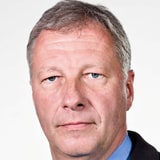Contents
On May 1, Switzerland took over the presidency of the UN Security Council from Russia. That was an advantage and a disadvantage at the same time. The advantage: Because Moscow had repeatedly pursued selfish interests, it was criticized accordingly. The expectation that Switzerland would make things fairer was correspondingly high.
The disadvantage: some countries did not want to bring up issues during the Russian presidency and postponed them until May. This month, which was already heavily loaded in the UNO calendar, became even more intense as a result.
An honest broker
Chairing the UN Security Council is not an opportunity for self-promotion. The Presidency is a serving function. It is intended to allow the Council to work professionally, soberly and efficiently. Especially given the current geopolitical tensions.
The Presidency should act as an honest broker, involve all fifteen Security Council members and communicate intensively and transparently – within the Council itself, with the other UN member states and with the public.
The range of topics in May was extremely broad – from Ukraine to South Sudan, from Syria to Myanmar, from the Gaza Strip to Yemen to the Sahel zone. It was about chemical weapons, blue helmets or the security of the Russian-occupied nuclear power plant in Zaporizhia. In the very last minutes of the Swiss presidency, North Korea and its spy satellite project were still being discussed behind the scenes. All difficult subjects.
Neutrality didn’t matter
However, Switzerland was spared two possible major confrontations: because the Syrian regime agreed to leave border crossings open for humanitarian aid in the north of the country for the time being, there was no further discussion with Russia in the UN Security Council. And because Moscow approved the extension of the grain agreement that allows Ukrainian exports, this issue did not lead to a bitter dispute in the Security Council either.
And what about Switzerland’s neutrality? It simply played no role during the month of the presidency. In not a single case was Switzerland restricted in any way in its conduct. She had made it clear from the outset that her behavior in the Security Council was not based on the positions of individual states, but rather on international law and the UN Charter. Switzerland obviously did well with this.
Unspectacular, trouble-free, successful
Switzerland was able to set a few accents of its own: for example with a special session on sustainable peace, which Foreign Minister Ignazio Cassis chaired. Or another to protect the civilian population in conflict zones, for which Federal President Alain Berset traveled to New York. Defense Minister Viola Amherd also chaired a session on blue helmets.
The decisive factor here is that if the presidency country raises its own issues, these should be those that the other fourteen Security Council members also consider important. This increases acceptance and global attention.
All in all: Switzerland managed its month of presidency unspectacularly and without a hitch. That alone counts as a success in the UNO gearbox, which is currently creaking and stuttering everywhere.
